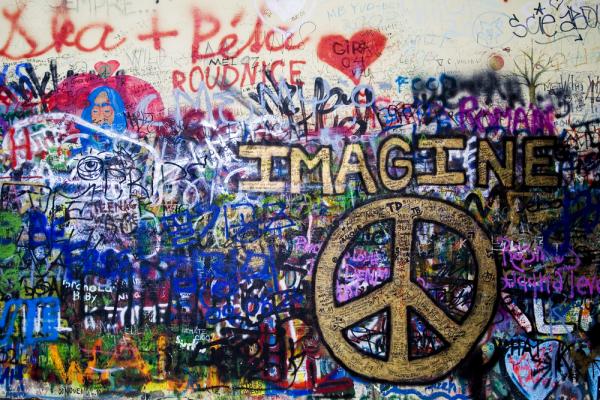According to the Stockholm International Peace Research Institute (SIPRI), the United States currently spends more than $711 billion per year on military expenditures, which is – by far – the most of any country in the world.
In fact, if one were to combine the totals of the next 14 nations on the list (China, Russia, the United Kingdom, France, Japan, Saudi Arabia, India, Germany, Brazil, India, South Korea, Australia, Canada, and Turkey), their combined amount is similar to the USA. All together, the USA provides about 43 percent of worldwide military costs, and in addition, the USA per capita ($2,240) and percent of Gross Domestic Product (4.8 percent) in relation to military funding is far greater than any other nation in the world.
With these statistics in mind, one is provoked to ponder some important questions. For example, what is revealed to us about the USA – and our world in general – when military expenses constitute such a significant percentage of a government budget?
In specifics, why does the USA spend far more on its military than any other country? In addition, what is revealed to us about the condition of our global village when $1.73 trillion is allocated each year to military funding? As stated by Sojourners CEO Jim Wallis, “A budget is a moral document. It clearly demonstrates the priorities of a family, a church, an organization, or a government. A budget shows what we most care about.”
As we celebrate the International Day of Peace (also known as World Peace Day, which falls each year on Sept. 21), one proposal worth exploring is the implementation of a U.S. Department of Peace and Nonviolence into the USA federal budget.
In specifics, in February of 2009 the U.S. House of Representatives heard H.R. 808 (first introduced in July of 2001) to create a Cabinet-level Department of Peace and Nonviolence that embodies a broad-approach to peaceful, non-violent conflict resolution at both domestic and international levels. Among other things, the Department of Peace and Nonviolence would serve to promote non-violence as an organizing principle of life, and help to create the conditions for a more peaceful world.
The following are some highlights from the proposed legislation:
- Establish a cabinet-level department in the executive branch of the federal government, headed by a Secretary of Peace and Nonviolence, appointed by the President with the advice and consent of the Senate. The Department of Peace and Nonviolence would be dedicated to peacemaking and the study of conditions that are conducive to both domestic and international peace.
- The mission of the Department of Peace and Nonviolence shall be: to hold peace as an organizing principle; endeavor to promote justice and the expansion of human rights; strengthen non-military means of peacemaking; promote the development of human potential; work to create peace, prevent violence, divert from armed conflict and develop new structures in nonviolent dispute resolution; and take a proactive, strategic approach in the development of policies that promote national and international conflict prevention, nonviolent intervention, mediation, peaceful resolution of conflict and structured mediation of conflict.
- The Department will create and establish a Peace Academy, modeled after the military service academies, which will provide a 4-year concentration in peace education. Graduates will be required to serve five years in public service through programs dedicated to domestic or international nonviolent conflict resolution.
With these thoughts in mind, one way to celebrate the International Day of Peace is to support a Department of Peace and Nonviolence within a USA government that spends far more on its military that any other nation in the world. If we value peace, our budget should reveal it.
While some might view such actions as anti-military, one would like to believe that all people – especially the brave women and men sent off to war – would appreciate the pursuit of alternative structural responses to violence. In addition, a commitment to peacemaking would send a powerful message to others within the global village, and would thus empower the USA to engage more fully and faithfully with others in our international community.
As people of faith we should be attentive to the various dangers in our global village, and protection from harm is indeed necessary. However, in response to the peace we ultimately find in Jesus, our global community is called to live in harmony and display mutual respect, offer compassion, and promote dignity.
While the ongoing cycle of violence and anger around us may appear to be unsolvable, hope should not be lost, for we find peace in the embrace of God, and in the way of Jesus – the Prince of Peace – we see a path laid before us.
And so, instead of allowing military expenses to define our relationships within the international community, the time has come for our faith to drive us toward embrace, to accompany our foreign companions, and in doing so, cooperate toward a more peaceful and nonviolent global village. A better world is indeed possible, and while the road to such a place is indeed long and winding, it is paved with peace, and we are called –one step at a time – to keep moving forward.
Brian E. Konkol is an ordained pastor of the Evangelical Lutheran Church in America (ELCA), serves as Co-Pastor of Lake Edge Lutheran Church (Madison, WI), and is a PhD candidate in Theology & Development with the University of KwaZulu-Natal (South Africa).
Photo credit: The Lennon peace wall in Prague. Image by Vera Kailova/Shutterstock.
Got something to say about what you're reading? We value your feedback!
